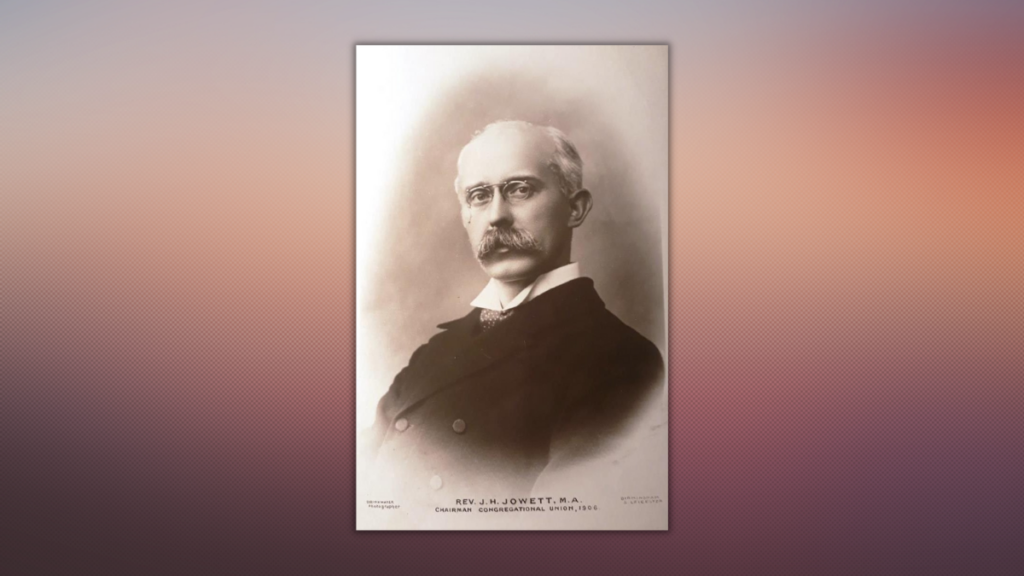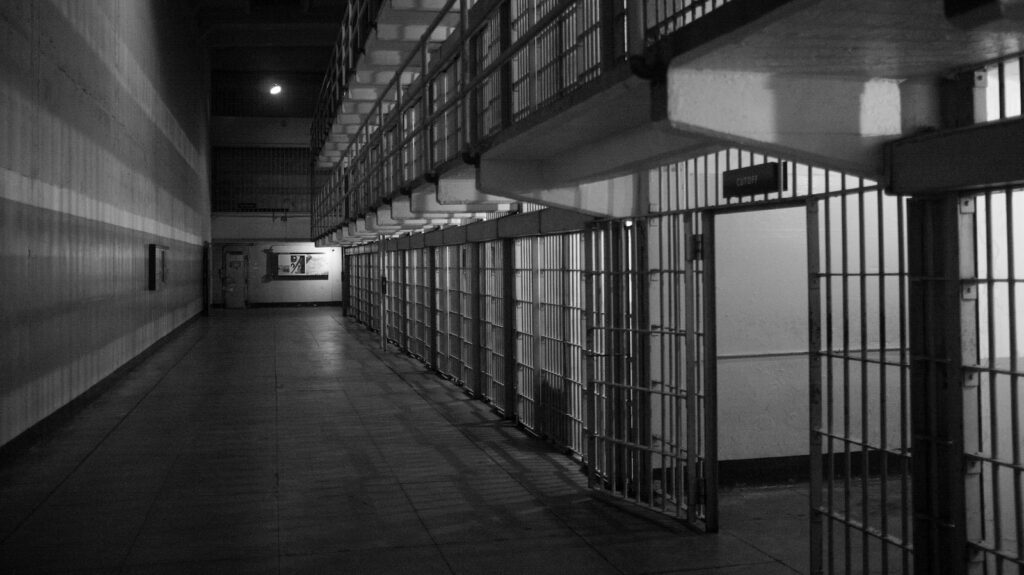By Trennis Henderson
The Baptist Paper
Why don’t people go to church? Because they’re dead.”

That unsettling quote, shared by author Bob Smietana during a keynote session of the recent Baptist Communicators Association annual workshop, is a stark reminder of how an aging population is impacting American congregations.
As more and more faithful church members graduate to heaven, fewer and fewer members of younger generations are taking their place in the pews (or folding chairs).
Smietana, a national reporter for Religion News Service, led the BCA session on “Reorganized Religion and Today’s Christian Communicator.” It played off of his recent book, “Reorganized Religion: The Reshaping of the American Church and Why It Matters,” released last year by Worthy Publishing.
‘Different universes’
Sharing statistics contrasting the Silent Generation’s Christian identity and church attendance to that of Millennials, Smietana said, “America’s grandparents go to church; their grandkids do not. America’s grandparents are white and Christian; their grandkids are not.
“These two groups of older and younger Americans live in what are essentially different universes when it comes to race and religion,” he added, “with different expectations of what the world should look like and who should be in charge.”
We all are familiar with organized religion and sometimes even disorganized religion. But what about reorganized religion? It’s a matter of recognizing and responding to the changing landscape of religion and society in healthy, redemptive ways that help the church both survive and thrive.
Citing a recent Pew Religion survey that found the percentage of self-identified Christians had dropped from 78% in 2007 to 63% in 2021, he said that number is projected to plummet below 40% by 2027.
Closer to home, he noted Southern Baptist church membership declined by more than 2 million during that same time frame.
“If you are doing more funerals than weddings,” Smietana pointed out, “your religious group is probably declining.”
One paradox — which he described as “the ‘Walmarting’ of churches in America” — is that while most churches are small, most people attend large churches (those with 250-plus in attendance).
A major challenge with that trend, he warned, is that in larger churches, participants typically “go less, give less, participate less.”

A side effect of declining worship attendance in the majority of churches, Smietana added, is that “the people doing the work in your congregation are really tired.”
With many evangelical churches “filled with old, conservative, married people,” he said that means young, liberal singles typically don’t feel included or welcome. The same is true across ethnic, political and socioeconomic lines.
When “churches tell people they hate them” by their words, actions and attitudes, “they will believe you and not come,” Smietana cautioned. One pivotal concern is: Will churches simply write off those with whom they differ or actively seek ways to connect with and minister to them in the name of Christ?
Despite such overwhelming issues, Smietana affirmed that churches frequently find effective ways to navigate challenge and change.
Smietana’s book offers encouraging examples of churches that help their neighbors, comfort the grieving, visit the sick, laugh and rejoice together and pick up one another when they fall. “They keep the faith when all seems lost,” he wrote. “The question is: Will churches and other religious institutions choose to live?”
One key, he suggested, is to steadily practice one’s faith amid today’s rapidly changing world. That definitely is a redemptive response worth pursuing.
EDITOR’S NOTE — Trennis Henderson is regional correspondent for The Baptist Paper.
The value of friendships
How do you compare the worth of objects to the value of people? It is impossible, but many people try to do it.
Fathers value jobs and work more than wife and kids. Teenagers value their electronics more than their parents.
What is more important anyway? Is it the possessions we can hold in our hands or the people we have in our hearts? I choose the latter.
I am more blessed by those friends and family that surround me than by the size or beauty of any building.
I have long said that God’s best blessings are not the possessions we own, but the people we cherish.
I cherish God’s great blessings that are found in my relationships.
Pastor Gary Fisher
South Roebuck Baptist Church
Birmingham
It is imperative that we surround ourselves with godly people who will do life with us and who will point us toward our Savior.
O’Shea Lowery
Dallas, Texas
Response: Trends in church music
As a longtime church organist, I served under some wonderful ministers of music and worked with some of the finest musicians in the Southern Baptist Convention.
I have always believed that music used prior to the sermon should lead members of the congregation to prepare their hearts for worship in order to hear what God has for them.
I am an advocate for hymns built on Scripture and theology that speak to the heart and lives of the worshipper. Congregations are starving for hymns that mean something to their lives and bring their heart and mind closer to God.
I believe even young people are hungry for congregational music that has meaning and raises their level of worship.
My heart breaks that young people are no longer being trained as church musicians.
I think our seminaries are doing the local churches, most of which are not large congregations with full-time ministers and classically trained musicians, a great disservice.
I’m afraid that unless seminaries better teach the truth of worship music and its place in the lives of its congregation, there will no longer be new worship hymns, congregational hymns sung during worship services or even worshippers.
People ask why church attendance is in decline. I fear this is one of the reasons. Why should lost people attend a church that is just like what they live with every day?
Iris L. Anderson
Retired organist
Dauphin Way Baptist Church, Mobile
EDITOR’S NOTE — Written in response to the article “What trends in church music are you seeing?” in the July 20 issue of The Alabama Baptist.
“We don’t know why God permitted this to happen right now, but we do believe He’s given us a job to do. Pray for the church there in the midst of it all,” said IMB worker Meg Brown on efforts to assist refugees impacted by the conflict in Sudan.
“The lesson in that is God uses whatever you have, whatever you’re interested in. It makes a difference in the world in church context. Whatever your hand finds to do, do it with all your might and to the glory of God,” said Andrew Dyer, pastor of Corinth Baptist Church in London, Kentucky, on ministering to others through pickleball.
“Johnny Cash transcends genres. … You’re looking at a guy who was a Christian and was really outspoken about his faith, and yet was so ubiquitous and had so much influence and was able to speak into so many people’s lives,” said Brent McCorkle, who wrote the music for the film “Johnny Cash: The Redemption of an American Icon” and co-directed this year’s box office hit “Jesus Revolution.”
“I have no clue what’s next in my life. But one thing God’s shown me all along the way, man, is He is for me. He’s not against me,” said football analyst David Pollack, in response to losing his job at ESPN during a recent round of layoffs.
Chitchat
In Him we have HOPE, so repeat after me: “Wherever my feet go, blessings flow. Walking in the favor and guidance of Jesus Christ, I am confident that His blessings accompany me every step of the way. I delight in His Word and seek His presence, knowing that He orders my steps and leads me to prosperity. Let His favor and blessings come forth in every aspect of my life, bringing glory to His name.”
@wildcontagioushope
To the individual with gender confusion, we owe patience, kindness, and gentleness.
But to the institutions aiding and abetting their deception we owe opposition.
@blondeorthodoxy
Katie McCoy
Twitter/X
Take heart! God has been preparing you for years for what he knew you would be facing today!
Richard Blackaby
If you linger near sin, you will fall in. The time to flee is now.
@pastorjgkell
Twitter/X
You don’t overcome sin by thinking about sin. You overcome sin by thinking of the One who washed you clean.
@DerwinLGray
Twitter/X






Share with others: